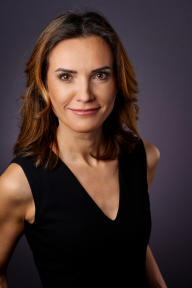Janssen's Biljana Naumovic told BioPharmaDispatch the work on developing new ideas is like 'building an intellectual muscle' because it requires work, effort and time.
Ms Naumovic recently succeeded Bruce Goodwin as the managing director of Janssen Australia and New Zealand. She previously held a senior Europe-based role in the company's oncology division, having joined Janssen from AstraZeneca.

The Janssen boss, whose previous role was based in Switzerland, told BioPharmaDispatch the genesis of her appointment was a call from her boss asking for her thoughts on Australia and New Zealand.
"I did not even pause. I said yes straight away because what an opportunity to lead such a great organisation. I can personally play my own small part in supporting our contribution to health systems in Australia and New Zealand and improving patient outcomes."
Ms Naumovic said an early observation about the two countries is the apparent willingness of decision-makers to think differently about health care. "The New Zealand government has announced a review of PHARMAC. The willingness to change in Australia is also combined with its established reputation as a leader in medical research. Thinking about how policy supports innovation, including in reimbursement, is the next step from that strength in research. Maybe there is a little delay in access in Australia compared to similar countries but at least there is a discussion about it."
Ms Naumovic said, "I am still thinking about and forming an opinion about this 'delay' because it is complex but an important thing to say is that Australia has a universal health system and that means access is recognised as critical. I believe Australia is like many other countries where the goal is to strike the right balance between access and cost. That can be a challenge but we do need to talk about it.
"Fixing the delay might have a cost but we also need to measure the cost of doing nothing. Do we measure the impact of sub-optimal therapy on other parts of the health system? The cost of fixing something is important but only if you also measure the real cost of not fixing it.
"We have to remember that we are at such an exciting time when it comes to innovation. In our lifetime, we will probably see cures for some cancers, as well as gene therapies that have the potential to give children with a severe genetic disease a normal life expectancy. It is an extraordinary time to be in the industry but also health care."
Ms Naumovic described the industry's need to focus on policy and ideas as like "building an intellectual muscle".
"We have to invest in policy development, in ideas, and always be thinking two, three, five or more years ahead about what is best for a system like the PBS. We have to be credible as an individual company and as part of an industry that is led by Medicines Australia. An important measure of our credibility is the support we give to the Australian health system and to patients.
"Policy development is an intellectual conversation but it starts with understanding that the work we do on quality ideas enables us to present ourselves as a good partner. It needs to be credible for what we do here, for Australians, the health system and the economy. It also needs to be based on data.
"We can build themes, such as system design in terms of patient engagement, and that requires a joint effort and time. Change can only occur with acknowledgement of the need for change. I think we may have seen some of that at last week's hearings of the parliamentary inquiry.
"The hearings showed the importance of industry being part of and even leading that discussion. There does need to be an open door from decision-makers and I do see that in Australia.
"An obvious strength of Australia's health system is that it is open and institutionalised in law. I have worked in countries where there is no law and people in government invent whatever they would like to invent.
"For us as a company and the industry, sometimes change might also mean prioritising one area of the health system over another. As companies, even if an issue or area is not a short-term priority, that does not mean we should not give our support. Our focus should be based on the development and application of a set of core principles."
Ms Naumovic said she does see herself as a 'steward' of the Janssen business but that this mindset extends to how the company engages with decision-makers, other stakeholders and the system. "We are all stewards and want to make systems even better for patients."

